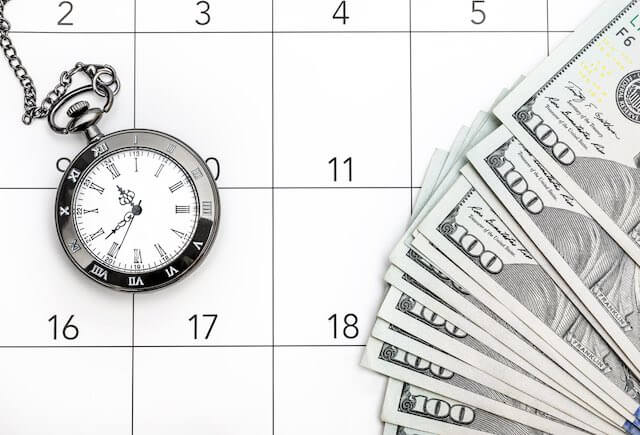I talk with feds all the time that are looking to retire and the most common answer to “when would you like to retire” is hands down December 31.
OPM is always swamped in the first months of each year dealing with the surge of retirement applications.
But is December 31 really the best day to retire?
Well, sometimes. But certainly not all the time.
Annual Leave
The biggest reason that feds like to retire at the end of the year is to maximize their annual leave lump sum payment.
And for those that are unfamiliar, only so much of your annual leave (normally 240 hours) will move over to a new year, and if you have any unused annual leave on the books when you retire then you are paid out a lump sum for that time. Waiting until the very end of the leave year allows you to get the largest lump sum possible.
So for annual leave purposes it does make a ton of sense to retire on December 31st but there are certainly other factors that come into play as well.
Here are a few to think about.
When Are You Eligible?
Some people are looking to retire as soon as they are eligible to and this day will rarely land right on December 31. So for these folks it may not be worth waiting until the end of year because they want to get out right away.
A good way to approach this decision is by finding out the first date that you are eligible to retire and then make tweaks from their to optimize some of your other benefits like annual leave and your pension.
Full 30 Day Months
When OPM calculates your pension they always look at how many full years and months of service you have. If you have any extra days they simply aren’t counted.
For example, if you have 20 years, 4 months, and 15 days of service, the 15 days fall off and your pension is only based on the 20 years and 4 months.
Knowing this, it may make sense to try to coordinate your retirement date right around when you are at a full month of service with no days that would fall off. OPM uses 30 day months when doing this math.
End of a Pay Period
If you retire in the middle of a pay period then you forfeit the leave you accumulated up to that point in the pay period. Because of this, it can make sense to try to retire at the end of a pay period whenever possible.
End of The Month
As a FERS employee, your pension will start the first day of the month after you retire. For example, if you retire June 10th, then your pension will start July 1st. If you retire on June 30th, then your pension will still start on July 1st.
Because of this it may make sense to retire toward the end of the month so there is less of a gap between your paychecks and retirement income.
Note: When I say your pension will “start” the 1st of the following month, that doesn’t mean that you’ll have your first check right at that point. It often takes months for your retirement application to be finalized by OPM but they will back pay you for the first couple of months of retirement that they missed.
Pension Bonus
One reason to potentially work a little extra is to try to get a 10% bonus to your pension that is available to those at age 62 with at least 20 years of service.
For example, if you are 62 and have 19.5 years of service then it may very well be worth it to you to work another six months to get the 10% bonus to your pension for the rest of your life.
Note: Sick leave can bump you over the edge to be eligible for this bonus. For example, if you were 62 with 19.5 years of service (like the example above) and had 6 months worth of sick leave then you would be eligible for the 10% bonus because your unused sick leave ads into your years of service at retirement.
When Do You Want to Retire?
Putting all your benefits aside, one of the most important questions to ask yourself is when would you like to retire? Is there a time of year that would be more enjoyable for your retirement plans? Do you simply want to retire as soon as possible?
Timing your retirement to maximize your benefits is a great thing, but enjoying your retirement is generally the higher priority, because as you know, the sure fire way to increase your benefits is by simply continuing to work but that does mean that is what you want to do.
It is important to find a balance between getting the most out of your benefits while also getting the most out of your go-go years of retirement.



